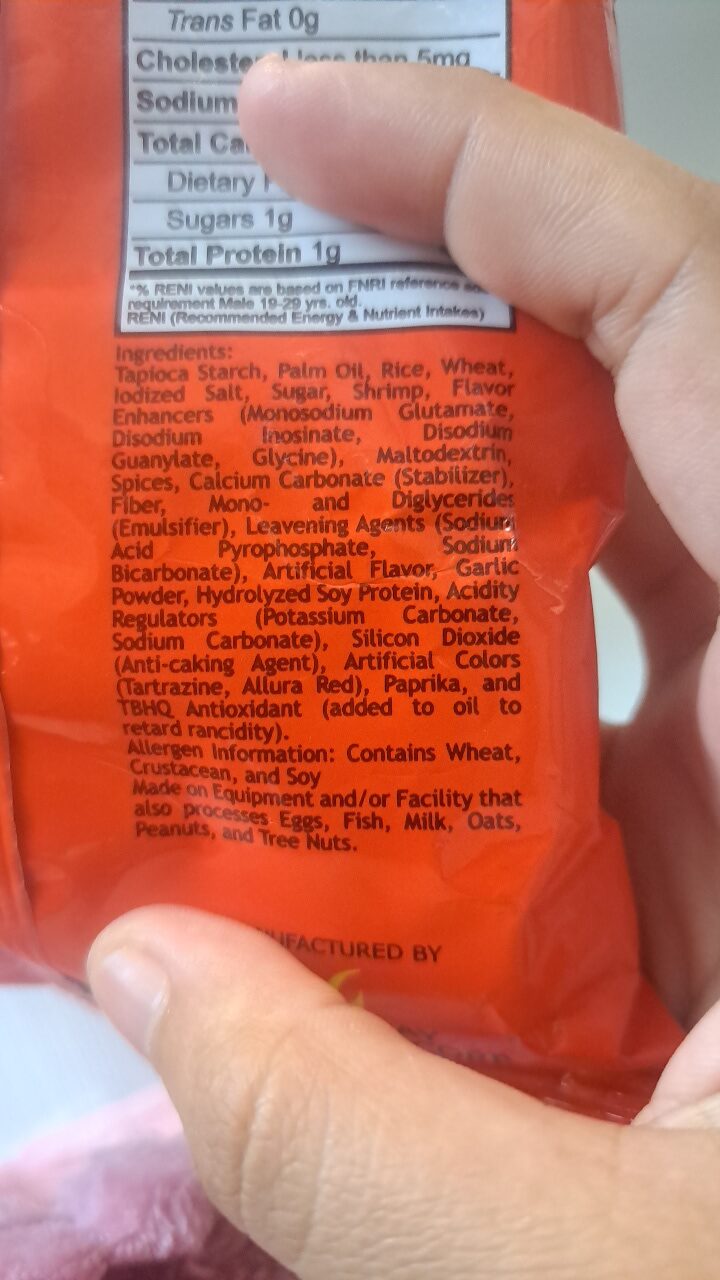
Barcode: 4800194116169
None
DOUBTFUL
📝 Reason: The product contains several ingredients with Doubtful status due to lack of Halal certification or unclear sourcing, such as shrimp, flavor enhancers, and certain ECode additives. Islamic dietary laws require clear evidence of Halal compliance for all ingredients, especially those of animal origin or synthetic additives with potential Haram sources. Quran 5:3 outlines prohibited foods, emphasizing the importance of Halal certification for doubtful items.
📄 Certificates: None
Ingredients:
Details
Is the Product None Halal? A Comprehensive Look
The question of whether a product is Halal or not is crucial for many consumers, particularly during a time when awareness about dietary restrictions is growing. Today, we’re diving into the Halal status of the product None. According to current guidelines, the Halal status of this product is considered DOUBTFUL. Let’s explore why this is the case and examine its ingredients closely.
Understanding Halal Certification
Halal is a term that means “permissible” in Arabic. For a product to be classified as Halal, it must be free from any components that are considered haram (forbidden) according to Islamic law. The Quran emphasizes the importance of consuming Halal, outlining prohibited foods in Quran 5:3. For a product containing dubious ingredients, the evidence of Halal compliance is paramount.
Ingredients Breakdown
Let’s analyze the key ingredients found in the product None and their respective Halal statuses:
- Tapioca Starch: Plant-based and generally considered Halal.
- Palm Oil: Plant-based, also considered Halal.
- Rice: A staple food that is Halal-friendly.
- Wheat: Another plant-based ingredient viewed as Halal.
- Iodized Salt: Made from minerals, typically Halal.
- Sugar: Plant-based and widely recognized as Halal.
- Shrimp: The status can vary among scholars; without Halal certification, marked as Doubtful.
- Flavor Enhancers: These require specific verification for Halal status.
- Monosodium Glutamate (E621): Generally considered Halal unless sourced from Haram ingredients.
- Disodium Inosinate (E631): Often derived from animal products and requires certification.
- Disodium Guanylate (E627): Similar to E631 with respect to its source.
- Glycine: Can come from animals; certification needed.
- Maltodextrin: Often considered Halal, contingent on its source.
- Spices: Typically Halal as they are plant-based.
- Calcium Carbonate: A mineral additive considered Halal.
- Fiber: Plant-derived and Halal friendly.
- Mono- and Diglycerides (E471): Often animal-derived and requires certification.
- Leavening Agents: Their status can vary; specific E-codes are needed for clarity.
- Sodium Acid Pyrophosphate (E450a): Generally viewed as Halal.
- Sodium Bicarbonate (E500): Considered Halal.
- Artificial Flavor: Needs verification of its Halal status.
- Garlic Powder: Plant-based and deemed Halal.
- Hydrolyzed Soy Protein: Generally Halal as it’s plant-based.
- Acidity Regulators: Their status varies and needs verification.
- Potassium Carbonate (E501): Typically Halal.
- Sodium Carbonate (E500): Seen as Halal.
- Silicon Dioxide (E551): Considered Halal.
- Artificial Colors: Their Halal status is variable, requiring specific checks.
- Tartrazine (E102): Based on opinion, its status varies among scholars.
- Allura Red (E129): Also controversial in its Halal status.
- Paprika: Plant-based, generally considered Halal.
- TBHQ Antioxidant (E319): Generally seen as Halal.
The Role of E-Numbers in Halal Compliance
E-numbers denote specific additives deemed safe, but their origins can affect their Halal standing. For instance, E631 and E627 require attention because they may come from animal sources. Additionally, many flavor enhancers and artificial components need full transparency regarding their sourcing to confirm their compliance with Halal dietary laws.
Conclusion: Is None Truly Halal?
Given the complex ingredients and the DOUBTFUL Halal status associated with the product None, consumers are advised to exercise caution. The absence of a Halal certification for key ingredients raises legitimate concerns surrounding its compliance with Islamic dietary laws. In conclusion, whether or not a product can truly be deemed Halal relies on the fully transparent sourcing and certifications of all its components. Always opt for certified Halal products to ensure compliance and religious adherence.

